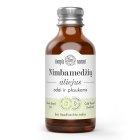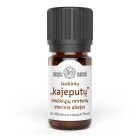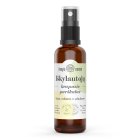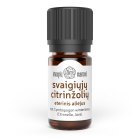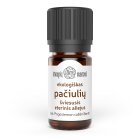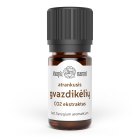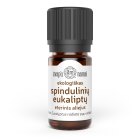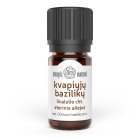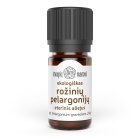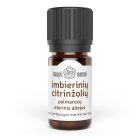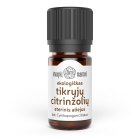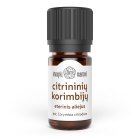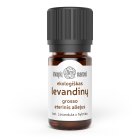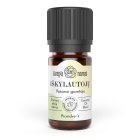Insect protection by plants and natural means
NB: The products and oils listed are not registered biocides.
Over millions of years, plants and herbs have developed a multitude of chemical compounds to win the battle for existence and to protect themselves against environmental threats, unwanted neighbours, micro and macro organisms, and a wide variety of insects; these include essential oils, alkaloids, terpenes and phenols. People only need to make use of these wonders of Nature. Just a few examples:
- Citronella, lemongrass, Cymbopogon citratus, corymbia (lemon-scented eucalyptus, Corymbia citriodora) are perhaps the best known. Their strong lemony scent masks the smell of humans, making it harder for mosquitoes to find their victims. Lemongrass, Corymbia oils and sprays are good to use for outdoor gatherings, evenings on terraces, etc. in the open air...
- Lavandin, Lavandula x intermedia, not only delights with its fragrant flowers. The camphoraceous scent of lavender has protected French homes for centuries from mosquitoes, flies, moths and fleas... Putting bags of dried lavender in cupboards and drawers helps to protect fabrics from moths, and applying the essential oil to the skin or clothes disgusts mosquitoes, while still allowing you to enjoy the pleasant, harmonising, aromatherapy smell!
- The scent ofpeppermint, Mentha piperita, is not only refreshing for people but also repels many pests. Peppermint oil contains compounds such as menthol and limonene which repel mosquitoes, ants, spiders and mice. By planting peppermint around the perimeter of your home or using peppermint oil spray indoors, you can repel both insects and rodents.
- Basil, Ocimum basilicum, is not only an important herb. Mosquitoes, flies, etc. do not like their strong aroma, so growing basil in pots near doors or windows can provide a good barrier against unwanted pests.
The plants not only repel pests. Many of these plants also have antimicrobial properties that help stop the growth of bacteria, fungi and other pathogens. In addition, unlike synthetic repellents (e.g. DEET), plant-based alternatives are biodegradable and pose minimal risks to the environment and human health.
Preferring plant extracts will not only protect our own health, the health of our children and pets, but will also strengthen our relationship with Nature.
Usage. Herbal essential oils are volatile, fast-evaporating substances and therefore have a shorter duration of action than synthetic DEET repellents - several hours or less - and should be remembered for more frequent use.
